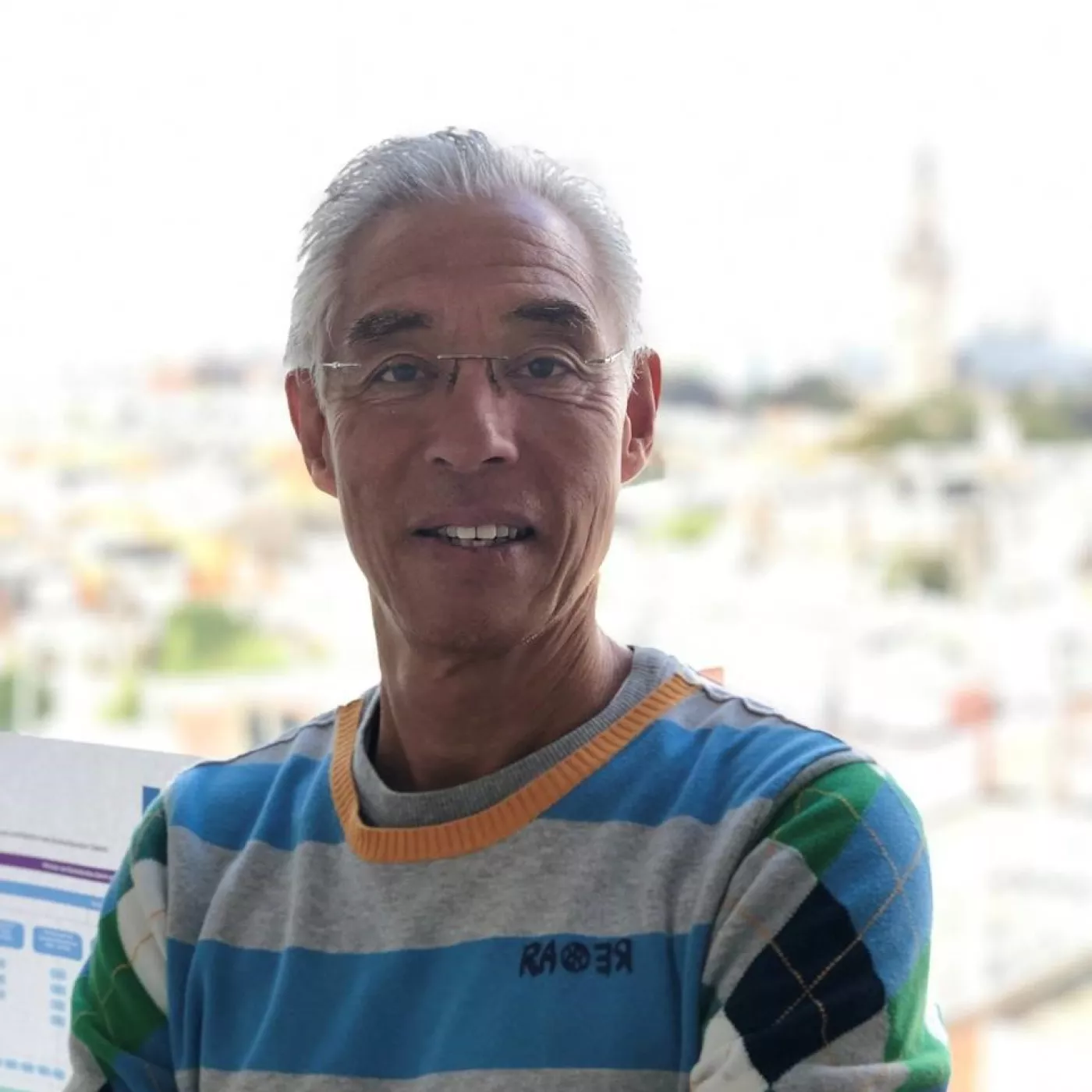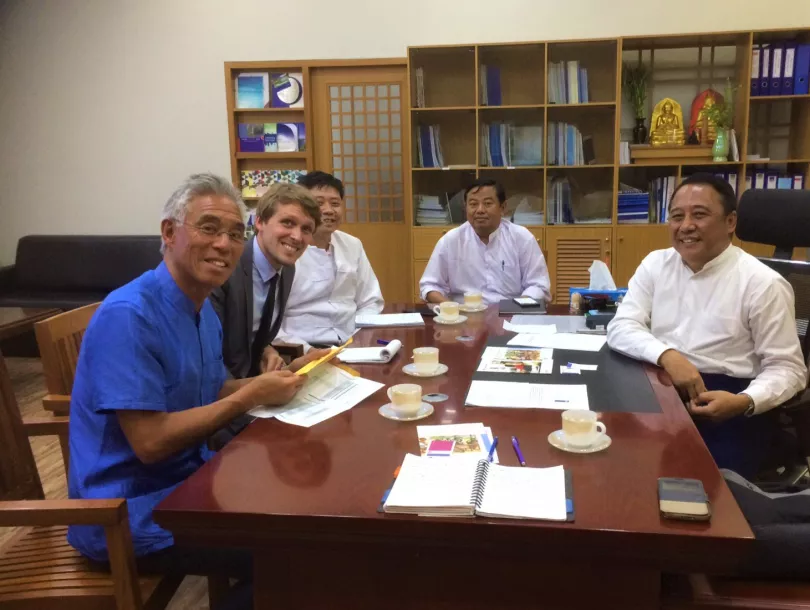"Capacity building is all about recognising a win-win situation"

There is a wealth of how-to books and complex instructions on making a success of capacity building. But when you strip it down to basics, says Koen Yap, it's all about organisational development and managing human inter-cultural relations. Tjay Koen Yap has been at Nuffic for 16 years. He is now retiring, leaving his final role as Country Programme Manager. Time for a conversation with him to look back at his wealth of experience and insights into what makes capacity building work. Koen speaks about capacity building with great enthusiasm, and clearly has his own vision on the subject.
What brought you into the business of capacity building?
"You could say I was born into it! My parents were Chinese from Indonesia. They came to the Netherlands to study. They met, they married and had two kids of which I was one. They stayed here. I lived abroad as a child and studied anthropology and sociology with a view to work in developing countries. I relate strongly to Southeast Asia, as a result. I also worked for the United Nations in the field for many years. I do my work for those people out there. That's where my heart is. My goal is to help the people in developing countries move forward. And if I have to bend over backwards to do so, I will. My approach to capacity building is based on my experience during working situations in the field abroad. I'm a hands-on person."
What makes a good capacity builder?
"In my view, capacity building is all about adding value to organisational development. All parties at the table must see that you are providing a useful service. To be good at it, you have to know how to mediate, connect and also how to make sure you are appreciated for your role. It's about forging long-term mutually beneficial relationships between educational institutions, ministries, consultancy firms and companies. You must be a good facilitator of human interrelations in order to make all these parties see eye to eye and make them all aware of the win-win advantages of working together. A capacity builder must also be naturally curious about the field in which he or she is operating."

"My goal is to help the people in developing countries move forward. And if I have to bend over backwards to do so, I will."
Why is that important?
"In order to facilitate value-added organisational development, a capacity builder must be involved in projects which contribute to what all parties are trying to achieve in a developing country. And many of those organisations has specific content relating to it. If you are dealing with the ministry of education, you must understand the context in which they operate. If you are dealing with a faculty of medicine, you have to understand the challenges in health education, medical education or pharmacy. You have to try to get to grips with what these organisations are trying to achieve. And then you have to understand the context in which they operate. The interplay between universities, government ministries and commercial parties is something you have to find out and understand. If you can get to grips with this complexity, it's only then possible for a capable capacity builder to do the right thing, and gain respect at the negotiating table."
How do you know when capacity building is a success?
"When you are able to forge long-term relationships or partnerships which go way beyond the original goal of the project."
Which projects come to mind?
"One initiative in Vietnam was very memorable. We initially set up a project aimed at providing more labour-market related education and training. We started off with eight universities and technical colleges in Vietnam, and the same number in the Netherlands, and we linked up with the Vietnamese Ministry of Education."
What was special about it?
"The Dutch and Vietnamese parties launched the project successfully, and I kept in contact with the Vietnamese ministry. There were eight parties on both sides, and suddenly we saw the requests from other Vietnamese educational institutions for that type of training skyrocket. We then enlarged the scope of the programme for universities in Vietnam. The ministry saw what we were doing and they changed the law and worked towards a national programme to make all training and education labour-market related. Today all universities have to comply with that law. The Dutch way of doing things has become law in Vietnam. We planted a seed and it became a forest. I personally received an award for contributing to Vietnamese higher education for that. A proud moment. A relatively small initiative becoming a sector-wide success, and growing of its own accord: that to me is the essence of great capacity building."
"The Dutch way of doing things has become law in Vietnam. We planted a seed and it became a forest."
Does this happen often?
"No, but when it does it's excellent. In Indonesia, a Nuffic funded project set up medical training skills labs based on the Problem Based Learning, along with the University of Maastricht. This has since become the mainstay of how medical training takes place throughout Indonesia. This resulted in a new system being introduced on a national level. This is also imparting Dutch teaching methods, which are often quite different to those in developing countries."
What characterises the Dutch method of providing education?
"It is an interactive way of learning which is practice-based and clearly linked to the labour market. And another important aspect is gender equality. Gender is often an issue in developing countries. Put simply: the boys get all the good stuff and what about the girls? Integrating gender balance into educational programmes is normal in the Netherlands. The Netherlands has so much niche knowledge to offer, especially in expert fields such as water, agriculture, gender issues and security and the rule of law. It's important to facilitate the sharing of that knowledge."
Do you have a project in mind?
"I was involved in a water education project in Vietnam, together with Delft and Wageningen Universities in the Netherlands and a number of Vietnamese universities. The aim of the project was to improve water education in Vietnam. And since then, Delft University and TLU University in Vietnam set up a commercial company called Vinwater, the Vietnam Netherlands Center for Water and Environment. Vinwater provides research, education and training for third parties. This is an income-generating, practical initiative, which also caters to the whole of Southeast Asia."
What are you looking forward to now you are leaving Nuffic?
"Well, my heart is really still in this business, so I really want to keep in contact, to be honest. Before my departure, I was involved in a lot of coaching of younger colleagues, and I would love to keep that up. I realise that is something which I really enjoy, and would like to do more of that. In fact, wherever I can provide assistance and advice thanks to my experience, I would like to continue doing so. I may have left the building, but capacity building is in my blood, so I really want to keep in touch."